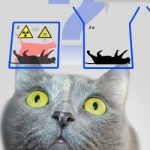Australian & Canadian Researchers Predict A ‘Hole’ New World for Potential of Mini Quantum Computers

(ZDNet) A team of Australian and Canadian researchers have published a new study they say demonstrates a path towards scaling individual quantum bits (qubits) to a mini-quantum computer by using holes.
The Australian Research Council (ARC) Centre of Excellence in Future Low-Energy Electronics Technologies (FLEET) said the work indicates holes are the solution to operational speed/coherence trade-off.
“One way to make a quantum bit is to use the ‘spin’ of an electron, which can point either up or down. To make quantum computers as fast and power-efficient as possible we would like to operate them using only electric fields, which are applied using ordinary electrodes,” FLEET said, alongside researchers from the ARC Centre of Excellence for Quantum Computation and Communication Technology (CQC2T) hosted by the University of New South Wales (UNSW), and participants from the University of British Columbia.
Culcer said the team’s theoretical studies show that a solution is reached by using holes, which can be thought of as the absence of an electron, behaving like positively-charged electrons.
“In this way, a quantum bit can be made robust against charge fluctuations stemming from the solid background,” FLEET said.
“Moreover, the ‘sweet spot’ at which the qubit is least sensitive to such noise is also the point at which it can be operated the fastest.”
“Our study predicts such a point exists in every quantum bit made of holes and provides a set of guidelines for experimentalists to reach these points in their labs,” Culcer added.



















